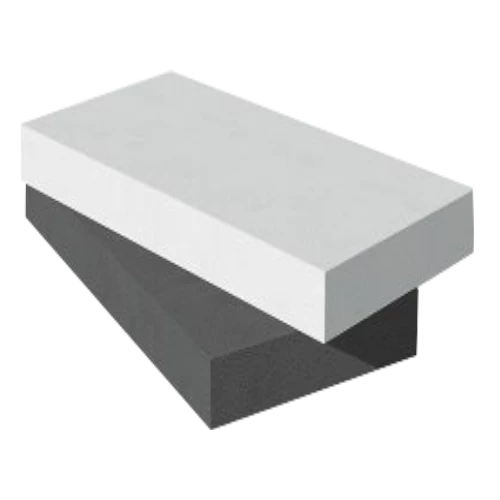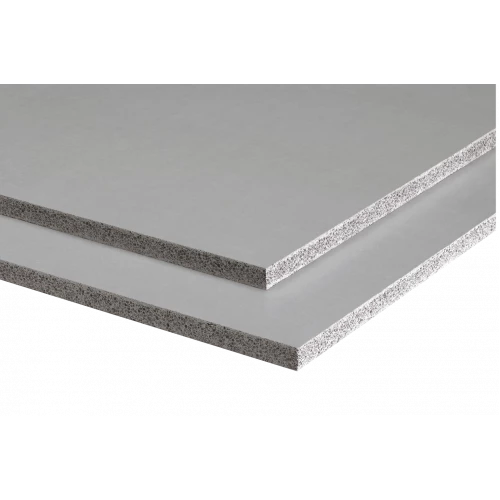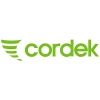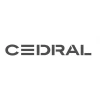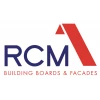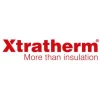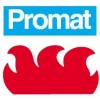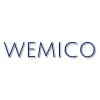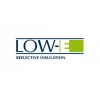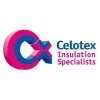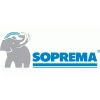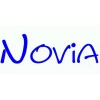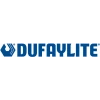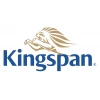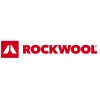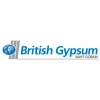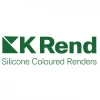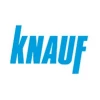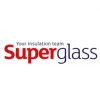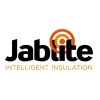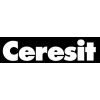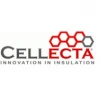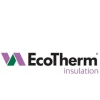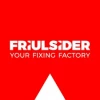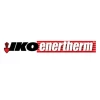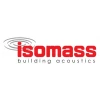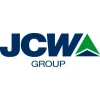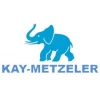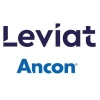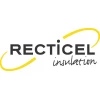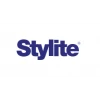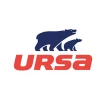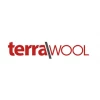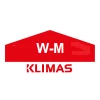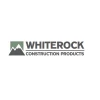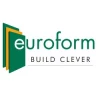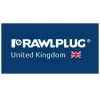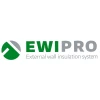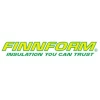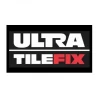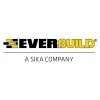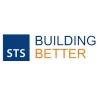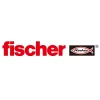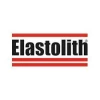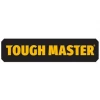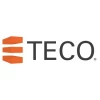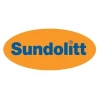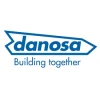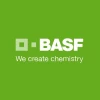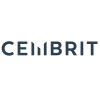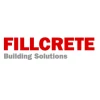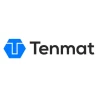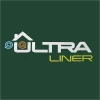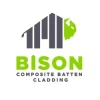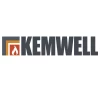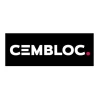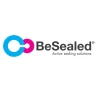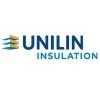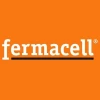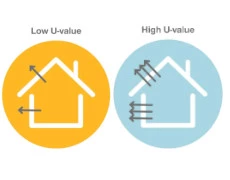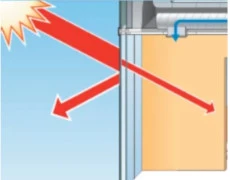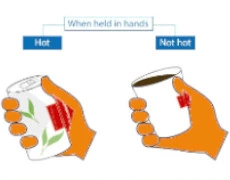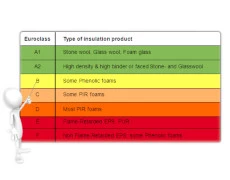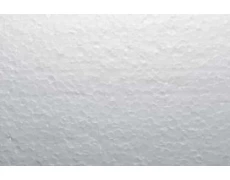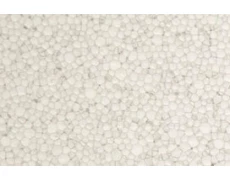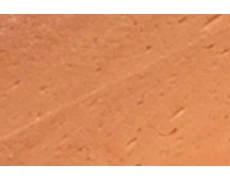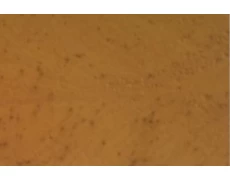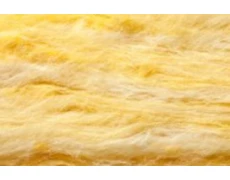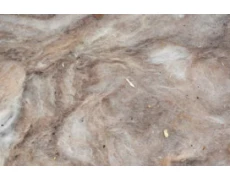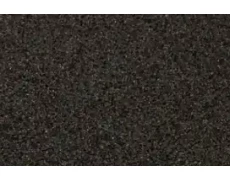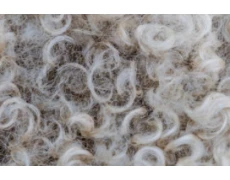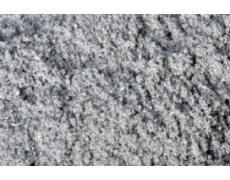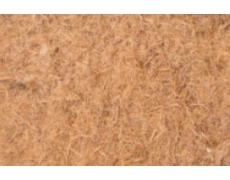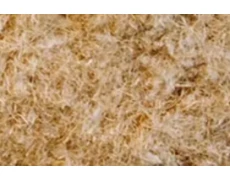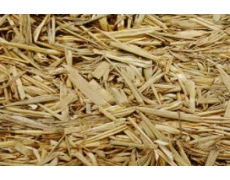
HOW TO CHOOSE THE RIGHT KINGSPAN INSULATION BOARD FOR CONSTRUCTION?*
Insulation is a crucial element in any construction project, and selecting the right insulation board can have a significant impact on a building's energy efficiency and overall performance. Kingspan is a leading manufacturer of insulation boards, offering a range of products designed for various applications. In this blog, we will discuss how to choose the right Kingspan insulation board for your construction project.
 Table of contents
Table of contents
- HOW TO CHOOSE THE RIGHT KINGSPAN INSULATION BOARD FOR CONSTRUCTION
- KINGSPAN COMPANY PRODUCTS
- -KOOLTHERM PHENOLIC K-RANGE
- -KINGSPAN PIR (POLYISOCYANURATE)
- -KINGSPAN XPS EXTRUDED POLYSTYRENE
- -OPTIM-R E ROOFING SYSTEM
- -QUADCORE EVOLUTION ROOF PANELS
- -TEK CLADDING PANELS
- WHAT THICKNESS OF KINGSPAN SHOULD I USE?
- WHAT IS THE DIFFERENCE BETWEEN KINGSPAN K7 AND K107?
- WHAT ARE THE DIFFERENT TYPES OF KINGSPAN?
- PHENOLIC INSULATION VS PIR
- KINGSPAN INSULATED PANELS
- PHENOLIC INSULATION PROBLEMS
- CONCLUSION
- BIBLIOGRAPHY
KINGSPAN COMPANY PRODUCTS
Kingspan is one of the leading manufacturers of thermal and acoustic insulation in the UK. The company is renowned for its high-quality products and innovative solutions, which have made it a popular choice among contractors, architects, and builders alike. Kingspan's insulation boards are known for their excellent performance, durability, and ease of installation, making them a preferred choice for a wide range of applications in the construction industry. The company is also committed to sustainability and has developed a range of eco-friendly insulation products, which have helped it to maintain its position as a market leader in the UK.
Here are some of Kingspan's innovative products:
KOOLTHERM PHENOLIC K-RANGE
This is a range of ultra-thin insulation boards that offer excellent thermal performance with a thickness that is up to 70% thinner than traditional insulation materials.
Here is the list of products from Kingspan's Kooltherm K-range, along with a brief description of each:
Kingspan Kooltherm K103 Floor Insulation Board
 Kingspan Kooltherm K103 Floor Insulation Board is an unbeatable floor solution with no equivalent to K103 superior thermal performance designed for suspended floors, ground supported floors and underfloor heating systems. Kooltherm K103 is manufactured with a blowing agent that has zero Ozone Depletion Potential (ODP) and low Global Warming Potential (GWP).
Kingspan Kooltherm K103 Floor Insulation Board is an unbeatable floor solution with no equivalent to K103 superior thermal performance designed for suspended floors, ground supported floors and underfloor heating systems. Kooltherm K103 is manufactured with a blowing agent that has zero Ozone Depletion Potential (ODP) and low Global Warming Potential (GWP).
K103 is manufactured to the highest standards under a management system certified to ISO 9001: 2015.
The use of Kooltherm K103 (in thicknesses of 25 - 150 mm) is covered by BBA Certificate 16/5299. Most commonly used thicknesses for Kingspan Kooltherm K103 Floor Insulation Board in the UK are 25mm, 30mm, 40mm, and 50mm.
Kingspan Kooltherm K106 Full Fill Cavity Board
 Kingspan Kooltherm K106 Full Fill Cavity Board is a premium performance rigid fibre-free phenolic insulation core factory bonded to a water-tight, vapour-open polypropylene fleece and to a inner facing of a low emissivity composite foil.It has excellent fire performance and is suitable for buildings up to 18 metres in height. The most common thicknesses used in the UK are 90mm, 100mm, and 115mm.
Kingspan Kooltherm K106 Full Fill Cavity Board is a premium performance rigid fibre-free phenolic insulation core factory bonded to a water-tight, vapour-open polypropylene fleece and to a inner facing of a low emissivity composite foil.It has excellent fire performance and is suitable for buildings up to 18 metres in height. The most common thicknesses used in the UK are 90mm, 100mm, and 115mm.
The product can also help achieve higher Building Regulation standards and reduce carbon emissions.
The average cost per square metre ranges from £35 to £45. It is recommended to obtain a quote from a supplier to get an accurate price for a specific project.
Kingspan Kooltherm K107(K7) Pitched Roof Board
 Kingspan Kooltherm K107 (K7) Pitched Roof Board is a premium performance insulation board designed for use in pitched roofs, specifically as an underlay beneath tile or slate coverings.
Kingspan Kooltherm K107 (K7) Pitched Roof Board is a premium performance insulation board designed for use in pitched roofs, specifically as an underlay beneath tile or slate coverings.
It is commonly used in thicknesses of 50mm and 120mm in the UK and has a cost range of £24-£35/m².
Kingspan Kooltherm K108 Partial Fill Phenolic Cavity Board
 Kingspan K108 Partial Fill Phenolic Cavity Board is an insulation product specifically designed for use in cavity walls. The board is made of a high-performance rigid thermoset phenolic insulation core, which is sandwiched between two layers of low-emissivity foil facing. This construction provides excellent thermal insulation while also preventing heat loss through radiation.
Kingspan K108 Partial Fill Phenolic Cavity Board is an insulation product specifically designed for use in cavity walls. The board is made of a high-performance rigid thermoset phenolic insulation core, which is sandwiched between two layers of low-emissivity foil facing. This construction provides excellent thermal insulation while also preventing heat loss through radiation.
The board is available in various thicknesses, and its commonly used thickness in the UK is 90mm. The K108 Partial Fill board is easy to install and helps to improve the energy efficiency of buildings, reducing heating costs and carbon emissions.
Kingspan Kooltherm K110 Soffit Insulation Board
Kingspan Ko oltherm K110 Soffit Insulation Board is an advanced soffit rigid phenolic insulation sheet with a thermal conductivity of 0.019 W/mK used for an extremely thin structural ceiling (soffit) construction. It has a fibre-free rigid thermoset phenolic insulation core, which provides excellent thermal performance with a low profile. The board is easy to cut and fit and has a foil facing for enhanced insulation performance.
oltherm K110 Soffit Insulation Board is an advanced soffit rigid phenolic insulation sheet with a thermal conductivity of 0.019 W/mK used for an extremely thin structural ceiling (soffit) construction. It has a fibre-free rigid thermoset phenolic insulation core, which provides excellent thermal performance with a low profile. The board is easy to cut and fit and has a foil facing for enhanced insulation performance.
It is commonly used in commercial and residential buildings to improve energy efficiency and reduce heat loss.
Its typical thickness ranges from 65mm to 85mm, and the price per square metre can vary depending on the thickness and quantity purchased.
Kingspan Kooltherm K110 PLUS Soffit Insulation Board
 Kooltherm K110 PLUS Soffit Insulation Board is a high-performance insulation product designed specifically for insulating the underside of concrete and masonry roofs or soffits. It has a low thermal conductivity and a high compressive strength, making it ideal for use in areas with high loads.
Kooltherm K110 PLUS Soffit Insulation Board is a high-performance insulation product designed specifically for insulating the underside of concrete and masonry roofs or soffits. It has a low thermal conductivity and a high compressive strength, making it ideal for use in areas with high loads.
This insulation board is made from a closed-cell phenolic foam core with a glass tissue facing on both sides, providing excellent thermal insulation and fire performance.
Kooltherm K110 PLUS Soffit Insulation Board is commonly available in thicknesses of 71mm to 126mm and typically costs around £60 to £80 per square metre.
Kingspan Kooltherm K112(K12) Framing Board
 Kingspan Kooltherm K112 is used for timber and steel framing applications, offering high thermal performance in a slim profile.
Kingspan Kooltherm K112 is used for timber and steel framing applications, offering high thermal performance in a slim profile.
It is commonly used in thicknesses of 50mm and 60mm in the UK and has a cost range of £23-£34/m².
Framing boards are lightweight insulation panels that are easy to transport, handle and install.
The use of Kingspan Kooltherm® K112 is covered by BBA Certificate 16/5299.
Framing board is an eco-friendly product that can be used to control potential condensation problems, if combined with a vapour resistant layer placed on the warm side of the insulation.
Kingspan Kooltherm K15 Rainscreen Board
 Kingspan Kooltherm K15 is designed for use in rainscreen cladding systems, providing excellent thermal performance and fire resistance. It is commonly used in thicknesses of 60mm and 80mm in the UK and has a cost range of £50-£70/m².
Kingspan Kooltherm K15 is designed for use in rainscreen cladding systems, providing excellent thermal performance and fire resistance. It is commonly used in thicknesses of 60mm and 80mm in the UK and has a cost range of £50-£70/m².
Kooltherm K15 is commonly used as insulation for rainscreen cladding systems with non-proprietary external finish, rainscreen cladding systems with terracotta clay tile external finish and rainscreen cladding systems on steel frames.
Kingspan Kooltherm® K15 is manufactured to the highest standards under a management system and is covered by BBA Certificate 14/5134.
Kingspan Kooltherm K118 Insulated Plasterboard
 Kingspan Kooltherm K118 combines plasterboard with insulation, providing a slim profile and high thermal performance.Kingspan Kooltherm K118 range is a fibre-free rigid phenolic thermoset insulation core with a certified thermal conductivity (lambda value) of 0.019W/mK bonded to a premium 12.5mm plasterboard. It is commonly used in thicknesses of 27mm and 37.5mm in the UK and has a cost range of £35-£55/m².
Kingspan Kooltherm K118 combines plasterboard with insulation, providing a slim profile and high thermal performance.Kingspan Kooltherm K118 range is a fibre-free rigid phenolic thermoset insulation core with a certified thermal conductivity (lambda value) of 0.019W/mK bonded to a premium 12.5mm plasterboard. It is commonly used in thicknesses of 27mm and 37.5mm in the UK and has a cost range of £35-£55/m².
These easy to install and decorate premium insulation panels are suitable for new build and refurbishment projects.
The insulation core and facings used in the manufacture of Kingspan K118 resist attack by mould, fungi, bacteria and microbial growth.
Kingspan Kooltherm K5 External Wall Board
 This board is designed for use in external walls, and offers excellent thermal performance with a thermal conductivity as low as 0.022 W/mK.
This board is designed for use in external walls, and offers excellent thermal performance with a thermal conductivity as low as 0.022 W/mK.
In the UK, the most common thickness used is 90mm and 100mm, and the cost varies depending on the supplier and quantity ordered.
Kooltherm K5 External Wall Board in the UK is around £50-70 per m2. It is available in various thicknesses ranging from 20mm to 70mm. Using Kooltherm Kingspan K5 a higher insulation value is achieved with a thinner board thickness than with other insulation materials (such as EPS, XPS and mineral wool). K5 is not cheap, but it is worth using because better insulation material means lower heating bills.
Overall, Kingspan's Kooltherm K-range offers a wide range of products for various applications, providing excellent thermal performance in slim profiles. The cost of each product can vary depending on the thickness and application, but they are generally considered to be premium products due to their superior insulation properties.
KINGSPAN PIR (POLYISOCYANURATE)
Kingspan TW50 Thermawall Cavity Wall Insulation Board
 Kingspan TW50 Thermawall Cavity Wall Insulation Board is a high-performance cavity wall insulation board with a fibre-free rigid thermoset polyisocyanurate (PIR) core designed for partial fill masonry cavity walls.
Kingspan TW50 Thermawall Cavity Wall Insulation Board is a high-performance cavity wall insulation board with a fibre-free rigid thermoset polyisocyanurate (PIR) core designed for partial fill masonry cavity walls.
It is commonly used for insulating walls and has a thermal conductivity (lambda) value of 0.022 W/mK.
The typical thickness range for TW50 is 40-100mm, with a cost per m2 ranging from £12-£20 depending on thickness.
TW50 Kingspan is a lightweight, easy to handle and install cavity wall board which can be readily cut by bricklayer using a sharp knife.
This reflective, low emissivity aluminium foil surface improves the thermal resistance of any unventilated cavity adjacent to the TW50 board.
Kingspan Therma TP10 PIR Insulation
 This is a general-purpose insulation board commonly used in walls, roofs, and floors. It has a low thermal conductivity and is available in thicknesses ranging from 25mm to 150mm. The price per m2 can vary depending on the thickness, but it typically ranges from £10-£25. The insulation core and facings of Kingspan Thermapitch TP10 resist attack by mould and microbial growth, and do not provide any food value to vermin.
This is a general-purpose insulation board commonly used in walls, roofs, and floors. It has a low thermal conductivity and is available in thicknesses ranging from 25mm to 150mm. The price per m2 can vary depending on the thickness, but it typically ranges from £10-£25. The insulation core and facings of Kingspan Thermapitch TP10 resist attack by mould and microbial growth, and do not provide any food value to vermin.
TP10 PIR Board is chemically inert and safe to use manufactured with a blowing agent that has zero Ozone Depletion Potential (ODP) and low Global Warming Potential (GWP). ThermaPitch TP10 Insulation Pitched Warm Roof Board is thermally efficient, as determined by using long-term thermal resistance values called R-Value.
Kingspan Thermawall TW55 PIR Insulation
Kingspan Thermawall TW55 PIR Rigid Fibre-Free Insulation Board is an insulation board with certified thermal conductivity of 0.022 W/mK used between studs or as an insulating sheathing material for steel and timber framing wall applications.
The typical thickness range for TW55 is 20-150mm, with a cost per m2 ranging from £20-£45 depending on thickness.
Kingspan Thermafloor TF70 PIR Insulation
Thermafloor TF70 PIR Insulation is a polyisocyanurate (PIR) fibre-free rigid insulation board with certified thermal conductivity of 0.022 W/mK used to insulate solid concrete, suspended ground floors and for use with underfloor heating systems.
It is typically used for insulating walls, floors, and roofs where a high level of thermal insulation is required. The typical thickness range for TF70 is 20-150mm, with a cost per m2 ranging from £18-£60 depending on thickness.
Kingspan Thermaroof TR24 Flat Roof Insulation Board
 Kingspan Thermaroof TR24 is a high-performance flat roof insulation board suitable for use in built-up, single-ply, and green roof systems. It is made of rigid PIR foam insulation core faced with a coated glass tissue on one side and bitumen-coated glass tissue on the other side. The board provides excellent thermal insulation and helps to reduce heat loss in commercial and residential buildings. It is lightweight, easy to handle, and cut to fit around obstacles. The most commonly used thicknesses for this product in the UK are 100mm and 120mm. The price per m2 varies depending on the thickness and quantity purchased.
Kingspan Thermaroof TR24 is a high-performance flat roof insulation board suitable for use in built-up, single-ply, and green roof systems. It is made of rigid PIR foam insulation core faced with a coated glass tissue on one side and bitumen-coated glass tissue on the other side. The board provides excellent thermal insulation and helps to reduce heat loss in commercial and residential buildings. It is lightweight, easy to handle, and cut to fit around obstacles. The most commonly used thicknesses for this product in the UK are 100mm and 120mm. The price per m2 varies depending on the thickness and quantity purchased.
Kingspan Thermaroof TR24 achieves a resistivity greater than 300 MNs/gm, when tested in accordance with BS EN 12086: 2013. Flat Roof Insulation Board TR24 should always be installed over a vapour control layer or sealed metal deck.
If correctly installed, Kingspan Thermaroof® TR24 can have an indefinite life.
Kingspan Thermaroof TR26 Flat Roof Board
 Kingspan Thermaroof TR26 is a high-performance insulation board designed for use on flat roofs. The board is made of rigid polyisocyanurate (PIR) foam, which provides excellent thermal insulation. It has a low thermal conductivity, making it very effective at reducing heat loss from buildings.
Kingspan Thermaroof TR26 is a high-performance insulation board designed for use on flat roofs. The board is made of rigid polyisocyanurate (PIR) foam, which provides excellent thermal insulation. It has a low thermal conductivity, making it very effective at reducing heat loss from buildings.
The TR26 board is typically used in new construction or refurbishment projects and is suitable for use in a variety of flat roof applications, including mechanically fixed single-ply membrane systems, as well as built-up felt and mastic asphalt systems.
Common thicknesses for TR26 range from 25mm to 150mm, with prices per m2 varying depending on the thickness and supplier.
Kingspan Thermaroof TR27 Flat Roof PIR Board
 Kingspan Thermaroof TR27 Flat Roof PIR Board is a PIR, flat-roof insulation board that is used on roofs waterproofed with fully-adhered, single-ply, partially-bonded, built-up felt, mastic asphalt or cold liquid applied waterproofing. It is made of a rigid PIR foam core with a composite foil facing on both sides.
Kingspan Thermaroof TR27 Flat Roof PIR Board is a PIR, flat-roof insulation board that is used on roofs waterproofed with fully-adhered, single-ply, partially-bonded, built-up felt, mastic asphalt or cold liquid applied waterproofing. It is made of a rigid PIR foam core with a composite foil facing on both sides.
The board is designed to be installed directly onto a flat roof deck, providing excellent thermal insulation and reducing heat loss. It is commonly used in commercial and industrial buildings, as well as in residential properties.
The thickness of the board can vary depending on the required insulation level, but it typically ranges from 25mm to 130mm. The cost per square metre of the Kingspan Thermaroof TR27 board can vary depending on the thickness and quantity purchased, but it generally ranges from £20 to £45.
Kingspan Thermaroof TR31 Plywood Flat Roof Insulation
 Kingspan Thermaroof TR31 Plywood Flat Roof Insulation is a high-performance insulation board designed for use in flat roofs with a waterproof plywood deck. It features a thermoset fiber-free rigid insulation core, faced on both sides with a low-emissivity composite foil.
Kingspan Thermaroof TR31 Plywood Flat Roof Insulation is a high-performance insulation board designed for use in flat roofs with a waterproof plywood deck. It features a thermoset fiber-free rigid insulation core, faced on both sides with a low-emissivity composite foil.
The insulation board provides excellent thermal insulation with a thermal conductivity of 0.022 W/mK.
The board is available in a range of thicknesses from 56mm to 126mm and is commonly used in commercial and industrial buildings.
Overall, Kingspan PIR offers a wider range of product options, including flat roof boards, pitched roof boards, cavity wall boards, and floor insulation boards.
KINGSPAN XPS EXTRUDED POLYSTYRENE
 Kingspan GreenGuard range offers 3 types of extruded polystyrene with different flooring loads in different grades called Greenguard - GG300, GG500 and GG700. Kingspan GG type of insulation material is formed with polystyrene polymer using an extrusion process. The XPS has a high R-value, good moisture resistance and high structural strength. Just like EPS, XPS is made of 98% air and just 2% plastic.
Kingspan GreenGuard range offers 3 types of extruded polystyrene with different flooring loads in different grades called Greenguard - GG300, GG500 and GG700. Kingspan GG type of insulation material is formed with polystyrene polymer using an extrusion process. The XPS has a high R-value, good moisture resistance and high structural strength. Just like EPS, XPS is made of 98% air and just 2% plastic.
Rigid XPS Insulation (Kingspan Styrozone) is a fibre-free rigid extruded polystyrene (XPS) insulation board with high compressive strength (stress) for specialist applications such as basements, car parks, inverted roofs and heavy-duty commercial, industrial and cold store flooring.
Kingspan XPS foam boards are the most popular when it comes to high quality insulation for roofing, below grade applications, commercial and recreational vehicle insulation. This is because it features a closed-cell construction. XPS might need a slightly increased thickness to reach the same intended U-value, but can offer a more robust and flexible solution as it can be positioned above or below the DPM and is resilient if exposed to moisture. It is available for a variety of applications including sheathing, foundation, under slab, re-siding, commercial roofing, under road plaza deck and commercial walls. It also is suitable for use under high load pavement, such as floors. XPS is usually avoided in areas where materials with less density are needed or where the material, which is not produced below a certain density, is not applicable.
Kingspan XPS is aslo frequently used in basements as well as foundation walls. Closed cell insulation boards are also suitable for many demanding and varied insulation applications including flat roof applications given the minimal moisture absorption. In these environments, XPS provides proven performance. Panels are available in various thicknesses (30mm, 50mm, 80mm and 100mm), so you can tailor the efficiency to suit your requirements.
 This is a vacuum insulated panel (VIP) system that provides outstanding thermal performance with a thickness of only 20mm. It is designed specifically for flat roofs and can help to reduce the overall thickness of the roofing system.
This is a vacuum insulated panel (VIP) system that provides outstanding thermal performance with a thickness of only 20mm. It is designed specifically for flat roofs and can help to reduce the overall thickness of the roofing system.
OPTIM-R E Roofing System from Kingspan has become popular for several reasons:
1.Outstanding thermal performance
The system is based on vacuum insulation panel (VIP) technology, which provides outstanding thermal performance with a thermal conductivity as low as 0.007 W/mK. This means it can achieve the required U-values with a much thinner insulation layer compared to traditional insulation materials.
2.Ultra-thin design
The system has a thickness of only 20mm, which means it takes up less space and allows for more headroom in buildings.
3.Resistant to moisture
The VIPs used in the system are resistant to moisture, which means they won't degrade over time or lose their insulating properties.
QUADCORE EVOLUTION ROOF PANELS
 These are insulated roof panels that feature Kingspan's QuadCore Technology, which provides excellent thermal performance and fire protection. They are also lightweight and easy to install.
These are insulated roof panels that feature Kingspan's QuadCore Technology, which provides excellent thermal performance and fire protection. They are also lightweight and easy to install.
QuadCore Evolution Roof Panels from Kingspan have become popular for several reasons:
1. Durability
The panels are made with high-quality materials that are designed to last for many years, making them a long-term investment for building owners.
2. Lightweight
Despite their strength and durability, the panels are lightweight and easy to handle, which makes installation quicker and easier.
3. Aesthetics
QuadCore Evolution Roof Panels are available in a range of colours and finishes, which means they can be customised to suit a variety of architectural styles and design preferences.
 These are insulated cladding panels that are designed for use in both roofs and walls.
These are insulated cladding panels that are designed for use in both roofs and walls.
The TEK Cladding Panel comprises 142 mm or 172 mm thick Structural Insulated Panels (SIPs) connected with a unique jointing system.
The panels themselves consist of a high performance rigid urethane insulation core, sandwiched between two layers of Oriented Strand Board type 3 (OSB/3).
During manufacture, the insulation core of the TEK® Building System panels is autohesively bonded to the OSB/3 facings.
This process provides more reliable and superior adhesion than the secondary bonding process used in the manufacture of most other SIPS.
Kingspan TEK® Building System panels are a structural composite. This composite assembly provides stiffness, strength and predictable responses to applied loads.
WHAT THICKNESS OF KINGSPAN SHOULD I USE?
The appropriate thickness of Kingspan insulation to use will depend on a variety of factors, such as the building regulations in your area, the type of building you are insulating, and the specific application of the insulation. Here are some common insulation thicknesses used in the UK and their typical applications:
 Walls
Walls
70mm: This is a common thickness for insulation used in solid walls, where the insulation is applied to the outside of the wall (Kooltherm K5 Kingspan External Board)
90mm: This is a common thickness for insulation used in cavity walls, where the insulation is placed between the two layers of wall (Kingspan Kooltherm K106 Cavity Insulation Board)
92.5mm: This thickness is sometimes used for high-performance insulation in walls, where a higher level of thermal performance is required (Kingspan Kooltherm K118 Insulated Plasterboard)
100mm: This is a common thickness for insulation used in timber frame walls, where the insulation is placed between the studs (Kingspan Thermawall TW55 Insulation Board or Kingspan Kooltherm K112 Framing Board )
 Floors
Floors
50mm: This is a common thickness for insulation used in suspended timber floors, where the insulation is placed between the floor joists (Kingspan Thermawall TW55 PIR Insulation)
100mm: This is a common thickness for insulation used in concrete floors, where the insulation is placed on top of the concrete slab (K103 Kingspan Kooltherm Floorboard)
150mm: This thickness is sometimes used for high-performance insulation in floors, where a higher level of thermal performance is required (Kingspan Thermafloor TF70 PIR Floor Insulation Board)
 Roofs
Roofs
100mm: This is a common thickness for insulation used in pitched roofs, where the insulation is placed between the rafters (Kingspan Kooltherm K107 Pitched Roof Insulation Board)
126mm: This thickness is sometimes used for high-performance insulation in roofs, where a higher level of thermal performance is required (Kingspan Thermaroof TR31 Plywood Flat Roof Insulation)
150mm: This is a common thickness for insulation used in flat roofs, where the insulation is placed on top of the roof deck (Kingspan GreenGuard GG300 R Extruded Polystyrene)
It's important to note that these are general guidelines, and the appropriate thickness of insulation for your building will depend on a range of factors. It's recommended that you consult with a professional insulation installer to determine the appropriate thickness of Kingspan insulation for your specific application.
WHAT IS THE DIFFERENCE BETWEEN KINGSPAN K7 AND K107?
Kingspan K7 and K107 are both rigid insulation boards designed for pitched roofs. The main difference between the two is their thermal conductivity values. K7 has a thermal conductivity value of 0.023W/mK, while K107 has a thermal conductivity value of 0.019 W/mK. This means that K107 offers better insulation performance than K7.
Kingspan K7 and K107 are not just a change in product name. They are two distinct insulation board products from Kingspan, designed for pitched roofs, with different thermal conductivity values. While both products offer insulation for pitched roofs, K107 has a better insulation performance than K7 due to its lower thermal conductivity value. It is important to select the right Kingspan insulation board for your construction project based on the specific requirements and building design.
WHAT ARE THE DIFFERENT TYPES OF KINGSPAN?
Kingspan offers a range of insulation boards designed for various applications, including:
Kooltherm
A premium performance insulation board with a fiber-free rigid thermoset phenolic core.
Therma
A range of high-performance insulation boards suitable for walls, floors, and roofs.
KoolDuct
A pre-insulated ductwork system designed for HVAC applications.
TEK
An insulated panel system designed for roofs and walls.
OPTIM-R
A vacuum insulation panel with a microporous core that provides excellent thermal insulation.
PHENOLIC INSULATION vs PIR INSULATION
 Phenolic insulation and polyisocyanurate (PIR) insulation are both types of rigid foam insulation. The main difference between the two is their thermal conductivity values. Phenolic insulation has a lower thermal conductivity value than PIR insulation, which means it offers better insulation performance.
Phenolic insulation and polyisocyanurate (PIR) insulation are both types of rigid foam insulation. The main difference between the two is their thermal conductivity values. Phenolic insulation has a lower thermal conductivity value than PIR insulation, which means it offers better insulation performance.
To provide an example of thermal conductivity values, a 100mm thick phenolic insulation board typically has a thermal conductivity value of around 0.018 W/mK, while a 100mm thick PIR insulation board typically has a thermal conductivity value of around 0.022 W/mK.
The savings and return on investment from using phenolic insulation versus PIR insulation will depend on various factors, such as the specific building design, location, and energy costs. However, generally speaking, phenolic insulation can provide greater energy efficiency and lower heating and cooling costs due to its superior insulation performance. While the initial cost of phenolic insulation may be higher than PIR insulation, the long-term savings on energy bills can provide a significant return on investment over time.
KINGSPAN INSULATED PANELS
Kingspan also offers a range of insulated panel systems designed for walls and roofs. These panels consist of a rigid insulation core sandwiched between two metal facings. Kingspan insulated panels are quick and easy to install, making them a popular choice for commercial and industrial buildings.
Some of the most popular Kingspan insulated panel products include:
 Kingspan KS1000RW
Kingspan KS1000RW
This panel is designed for use in roofs and walls, and features a polyisocyanurate (PIR) insulation core with a high-performance thermal conductivity of 0.022 W/mK.
It is available with a range of metal facings, and is suitable for use in both new build and refurbishment projects.
The average cost for this panel is around £60-£90 per square metre.
 Kingspan Optimo
Kingspan Optimo
Optimo insulated metal wall panels deliver a flat, aesthetically appealing modern building envelope solution. The use of pearlescent micas or metallic colours can provide an even more dynamic finish to any project. Optimo has the same joint as KS Series panels and can integrate with a variety of profiles. It is available with a range of metal and plastic facings, and is suitable for use in a variety of building types, from commercial and industrial to residential. The average cost for this panel is around £70-£95 per square metre.
Some of the benefits of using Kingspan insulated panels include:
Excellent thermal performance: The high-performance insulation core of Kingspan panels provides excellent thermal efficiency, helping to reduce energy consumption and lower heating and cooling costs.
Speed and ease of installation: Kingspan panels are designed to be quick and easy to install, which can help to reduce construction times and labour costs.
Durability and longevity: Kingspan panels are designed to be robust and long-lasting, helping to ensure that they continue to provide effective insulation and weather protection for many years.
Aesthetics: Kingspan panels are available in a range of colours and finishes, allowing them to be tailored to suit the aesthetic requirements of different building projects.
PHENOLIC INSULATION PROBLEMS
Phenolic insulation is generally considered to be a safe and reliable insulation material. However, there have been some concerns raised about the use of phenolic insulation in high-temperature applications, where it may release toxic gases.
It is important to use phenolic insulation in accordance with the manufacturer's instructions and to consult with a professional if you have any concerns.
There have been some cases where phenolic insulation has been incorrectly installed or used inappropriately, leading to issues such as moisture penetration or reduced insulation performance. It is important to ensure that phenolic insulation is installed correctly and in accordance with the manufacturer's instructions, and to monitor its performance over time to ensure that it continues to provide effective insulation.
There have been some reported cases of metal buildings experiencing corrosion and rusting issues after the installation of phenolic insulation. This is because some types of phenolic insulation contain acids that can cause corrosion of certain metals, particularly in humid or moist conditions.
In one example from the UK, a metal building that had been insulated with phenolic insulation was found to have extensive rust and corrosion issues within just a few years of installation. The metal cladding and roof panels had deteriorated significantly, leading to leaks and other structural problems. The building owner was forced to undertake extensive repairs and replacement work to address the issue.
To prevent these types of problems, it is important to choose phenolic insulation products that are specifically designed for use with metal buildings, and to ensure that the insulation is installed correctly and in accordance with the manufacturer's instructions. Regular inspections and maintenance can also help to identify and address any potential corrosion issues before they become major problems.
CONCLUSION
In conclusion, choosing the right Kingspan insulation board for construction requires careful consideration of a number of factors, including the type of application, the required thermal performance, and the available budget. It is important to select the right thickness and type of insulation for the specific application, and to ensure that it is installed correctly in accordance with the manufacturer's instructions. While there are some concerns regarding the use of phenolic insulation in high-temperature applications, Kingspan's range of insulated panel systems offer excellent thermal performance, durability, and ease of installation, making them a popular choice for a wide range of commercial, industrial, and residential building projects.
BIBLIOGRAPHY
- Kingspan. (n.d.). Insulation boards for pitched roofs. Retrieved from https://www.kingspan.com
- Kingspan. (n.d.). Insulated panel systems. Retrieved from https://www.kingspan.com
- Ecohome. (n.d.). Polyisocyanurate (PIR) rigid foam insulation. Retrieved from https://www.ecohome.net
- Walls and Ceilings. (2018, March 1). Phenolic vs. PIR. Retrieved from https://www.wconline.com/articles/91391-phenolic-vs-pir
Related articles:
Spray foam insulation – is it really that good?
Building regs part L changes. What is all about?
Insulated plasterboard thicknesses
How to install insulated plasterboard?
*All the information provided in the content published on Insulationgo blog is for informational and educational purposes only. Insulationgo LTD makes every effort to ensure the accuracy and timeliness of the content, but we do not assume any responsibility for any errors or omissions.
The information presented on this blog should not be considered as professional advice or a substitute for consulting relevant experts. Before making any purchase decisions or taking action based on the information presented here, it is strongly recommended to contact the product manufacturer directly to verify the details and ensure its suitability for your specific needs.
By using this blog, you acknowledge and agree that Insulationgo LTD shall not be held liable for any damages, losses, or inconveniences arising from the use or reliance on the information provided herein. This limitation of liability applies to all users of the blog, including but not limited to visitors, readers, and subscribers.











